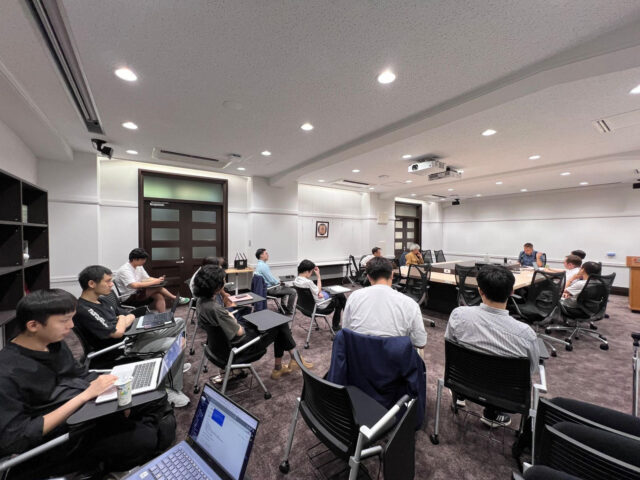“The Mystical Form of Absolute Dialetheism in Kiyozawa Manshi and the Early Nishida Kitarō” is a paper co-authored by Gregory Moss (The Chinese University of Hong Kong) and Dennis Prooi (Hong Kong University of Science and Technology). While dialetheism is the position that there are true contradictions, absolute dialetheism is the thesis that the absolute exists and can only be known as a true contradiction.
Kiyozawa Manshi (1868-1903) holds that the absolute exists, but every attempt to know it conceptually falls into contradiction. The absolute can only be known by abandoning logic and its correlative rules. Here, Kiyozawa faces a challenge as he still needs to provide a logical argument to support absolute dialetheism. Since we cannot find peace of mind as long as we are trapped inside of the philosopher’s contradictory circle, he argues that the practice of philosophy grounds religious practice.
Unlike Kiyozawa, Nishida did not suggest we need to abandon logic. In order to know the absolute, the philosopher needs only to attend to the trans-conceptual absolute that is at work in the inconsistency of philosophical thought itself. For Nishida, philosophers should learn to be content with conceptual and reflective experience, not only as a contradictory experience, but as a pure trans-conceptual experience of the absolute contradiction.
Moss and Prooi conclude that Kiyozawa and Nishida are absolute dialetheists: they think that the absolute exists and that it can be known only as a contradiction. However, they do not merely posit the absolute as a mere possibility. They do not merely claim that if the absolute exists, then it must be contradictory, but do so in conjunction with the claim that the absolute actually exists. To highlight this characteristic of their absolute dialetheism, we have dwelt at length on their respective proofs of the absolute. Whereas Kiyozawa simply accepts the ontological argument, Nishida constructs his own proof. The existence of this God can only be proven directly—for example, in the experience of losing oneself in music. In this experience, God is active as the infinitely free subjectivity that functions as the base and the unifying principle of reality.

Report by Cheung Ching-yuen
Photo by Lau Sze-ho








